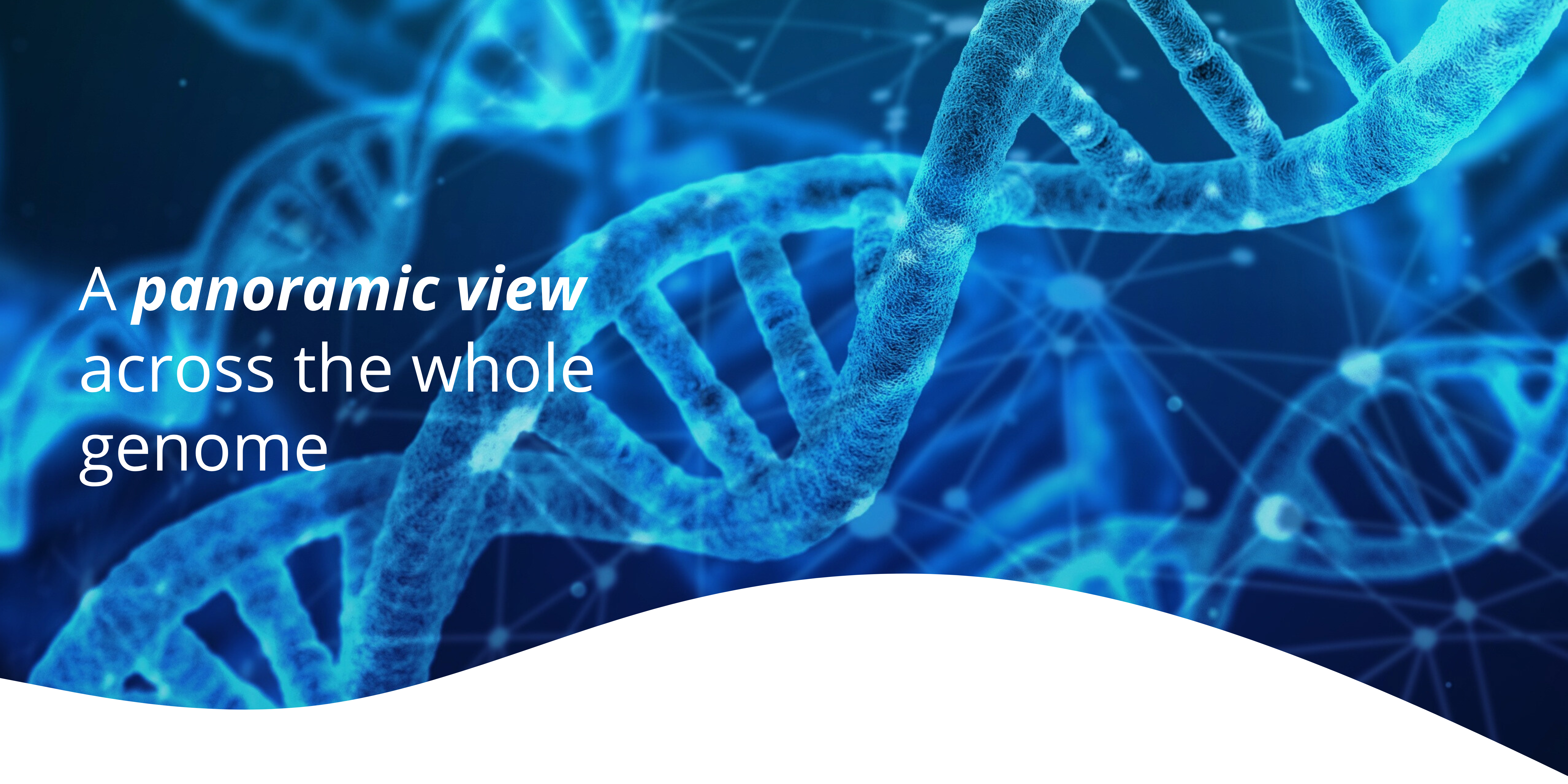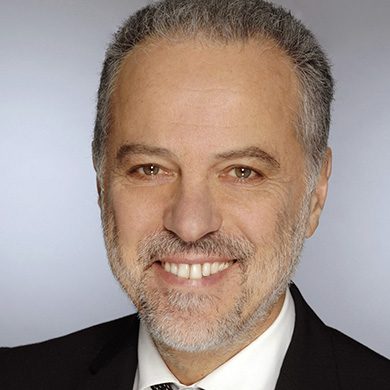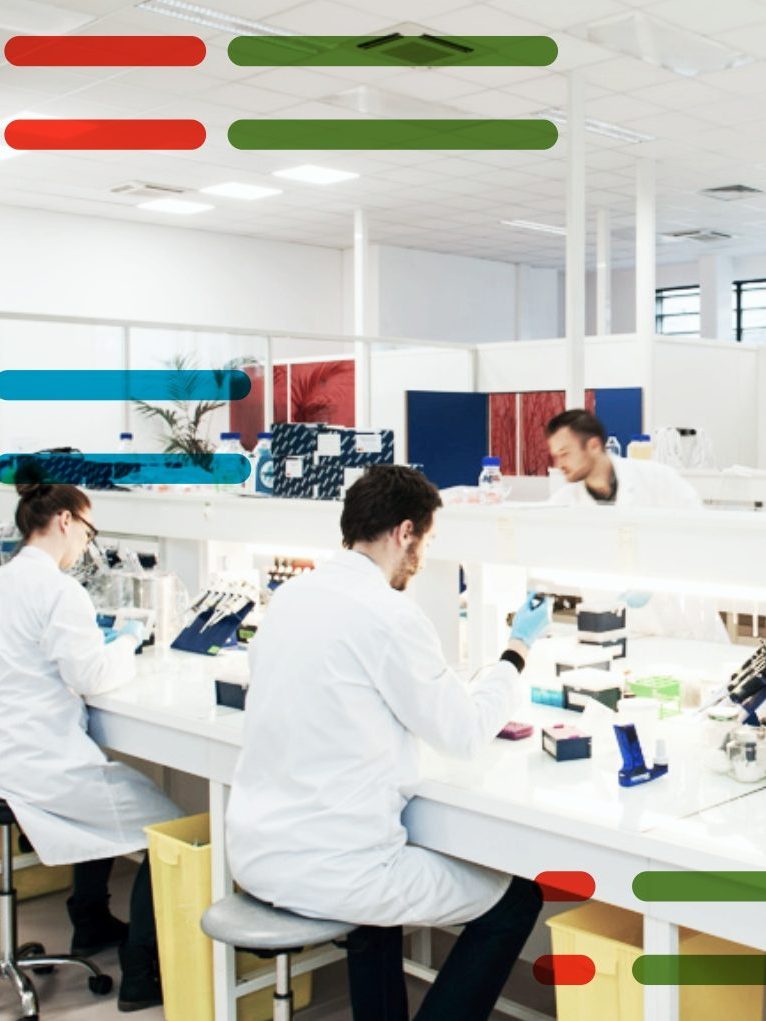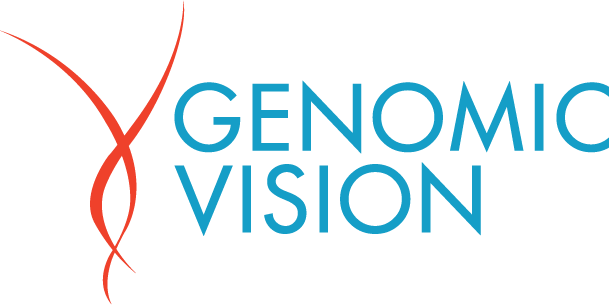
While it is now clear that sequencing will not solve all the questions that arise in precision therapeutics or in the characterization of genetic modifications, we are convinced that the proprietary technology developed by GV will enable a paradigm shift in bioproduction, gene and cell therapy and in the discovery of new molecules.
Genomic Vision
«I am very honored to have taken over the chairmanship of
the supervisory board of Genomic Vision, a pioneering
company in genome analysis, which deploys its know-how and
expertise towards new innovative technologies for support
the bioproduction and gene therapy industry.
At a time when diagnostic activities are becoming more
difficult, I am
proud of the work accomplished in a short time by a team
that knows how to reinvent itself around a disruptive
technology that integrates artificial intelligence and which
has been able to develop new growth prospects.
These technologies will provide considerable support to the
bioproduction and gene therapy, which are growing
sectors
and constantly evolving.
I am convinced that Genomic Vision can play a major role in
the transformation of the industry of biotechnology, and
will put in place the necessary strategies to achieve
this.
Genomic Vision has worked closely with top industry experts
to develop our technology and we are convinced that this
will enable significant advances in the research,
development and production of new gene therapies.
I am committed to working closely with our management team
and employees to ensure that our company continues to
innovate and grow. We will continue to focus on the quality
of our products, the excellence of our customer service and
the satisfaction of our customers.»

Florence Allouche
Chairman of the
Supervisory Board
«Genomic Vision had a successful year of transition,
leading to a a more structured and refined global approach
to its activity for the year 2023.
Our strategic
reorientation was made possible thanks to the replacement of
our governance, the strengthening of our management team and
the implementation of new national partnership agreements
and international.
Since this reorganization, our work
is now focused on promising new markets such as
bioproduction and gene and cell therapy.
The objective
is clear: to put our technological solutions at the service
of quality control of medical treatment.
Sign of a
future phase of growth for Genomic Vision, the structuring
projects on which we are working will allow us to capitalize
on a sector of the future and achieve lasting success.»

Aaron Bensimon
Chairman of the
Executive Board
Focus Area

Drug discovery
Standard chemotherapies are based on the use of cytotoxic compounds that will enhance the replication stress response of cancer cells to impair their multiplication.
Genomic Vision’s proprietary assay called Replication Combing Assay (RCA), is a powerful approach to evaluate the efficacy of chemotherapy compounds targeting DNA replication or repair pathways, via monitoring spatial and temporal parameters of DNA replication at a single-molecule resolution. Thousands of DNA molecules from cells treated under various conditions (e.g., different drugs, concentration, timing etc.) can be stretched at a constant rate simultaneously on treated coverslip, allowing us to precisely evaluate parameters that can be affected by replicative stress or DNA damage such as DNA replication speed, fork stalling, fork restart or inter-origin distances.

Bioproduction
Bioproduction is a process that exploits living systems & biological molecules (such as microorganism and cell culture) for scalable production of bio-materials for use in pharmaceutical/medicine, food & beverage and agriculture industries.
Genomic Vision technology offers the characterization of genetic material as a Quality Control requirement for biomaterial production, based on 6 parameters i.e.
- Integration identification
- Copy number determination
- Orientation assessment
- On & Off target insertion
- Genetic integrity of target region
- Genetic Signature for stability assessment



Cell and gene therapy
The field of healthcare where delivery of genetic materials via vector/carrier system (developed for genetic alteration or cellular modification) into the patients for amelioration of disease, is defined as Cell & Gene therapy.
With Molecular Combing technology, the positive identification, genetic integrity, on/off target insertion, stability characterization of the therapeutic product can serve as a Quality Control requirement for heathier and safer treatment.
Testimonials

« Adding Molecular Combing to our laboratory expertise will help
us expand our research on how DNA damage, unusual DNA
structures, and changes in replisome composition affect DNA
replication and give rise to genome instability and increased
cancer risk”.
Professor Kristina Schmidt
Professor
of Cell & Molecular Biology at the University of South
Florida
« We are very excited to utilize Genomic Vision’s TeloSizer® application to develop highly accurate companion tests that will benefit patients. TeloSizer® offers greater accuracy and more information compared to other telomere measurement methods.”
Christophe Lachaud
Group leader at
CNRS
« FiberSmart® sets new standards in the analysis and quantification of Replication Combing Assays as it offers automated recognition of DNA structures, as well as ease and speed of use.”
Helmut Pospiech, Ph.D.
Senior Research
Fellow at Fritz Lipmann Institute
« TeloSizer® will provide new information on individual telomere length and their distribution”.
Vincent Geli
Deputy Director of CRCM
expert in telomeres
“We are pleased to be working with Genomic Vision, a member of
the NIST Genome Editing Consortium, and welcome their innovative
QCA method of genome characterization to help advance the genome
editing field. For this NIST Genome Editing Consortium Interlab
Study, organizations were given a set of blinded qualified
samples provided by NIST to assess their technologies. Genomic
Vision’s technology demonstrated high accuracy for quantitative
analysis of genomic events around 10 kilobases and greater.”
Samantha Maragh, Ph.D.
Project Leader
of the Genome Editing program at NIST


